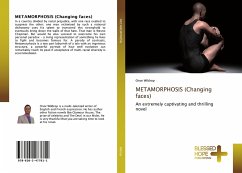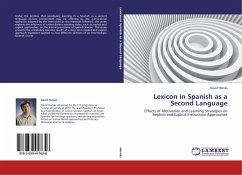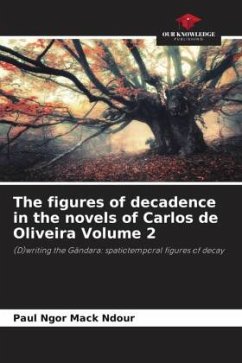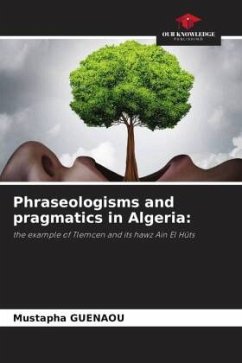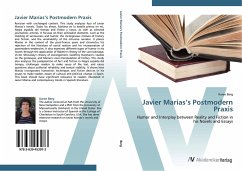
Javier Marías's Postmodern Praxis
Humor and Interplay between Reality and Fiction in his Novels and Essays
Versandkostenfrei!
Versandfertig in 1-2 Wochen
52,99 €
inkl. MwSt.

PAYBACK Punkte
26 °P sammeln!
Revision with unchanged content. This study analyzes four of Javier Marías s novels, Todas las almas, Mañana en la batalla piensa en mí, Negra espalda del tiempo and Fiebre y lanza, as well as selected journalistic articles. It focuses on their antirealist elements, such as the melding of seriousness and humor, the incongruous mixture of history and fiction, and the unreliability of the intrusive narrator. It places Marías in the context of the post-Franco years and chronicles his rejection of the literature of social realism and his incorporation of postmodern tendencies. It also examines...
Revision with unchanged content. This study analyzes four of Javier Marías s novels, Todas las almas, Mañana en la batalla piensa en mí, Negra espalda del tiempo and Fiebre y lanza, as well as selected journalistic articles. It focuses on their antirealist elements, such as the melding of seriousness and humor, the incongruous mixture of history and fiction, and the unreliability of the intrusive narrator. It places Marías in the context of the post-Franco years and chronicles his rejection of the literature of social realism and his incorporation of postmodern tendencies. It also examines different types of humor in his novels through the application of Bakhtin s theory of the carnivalesque, Victor Shlovosky s theory of estrangement, Geoffrey Harpham s studies on the grotesque, and Marías s own manipulation of history. This study also analyzes the juxtaposition of fact and fiction in Negra espalda del tiempo, challenges readers to make sense of the text, and raises questions about authorial reliability and textual stability. It shows how Marías incorporates humoristic techniques and fictive devices in his essays to make readers aware of cultural and political change in Spain. This book should have significant relevance to readers interested in Javier Marías and contemporary trends in Spanish literature.




